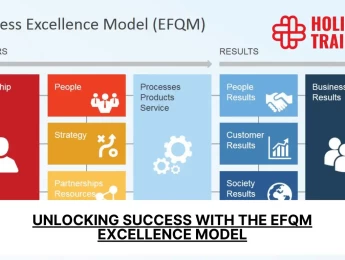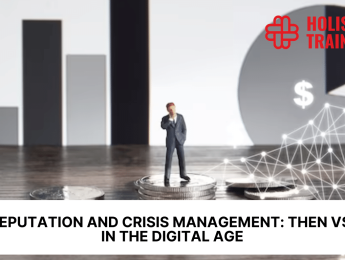- Table of Contents
- Introduction
- What Is Online Reputation Management?
- Why Is Online Reputation Management Important?
- What Impacts Your Online Reputation?
- 1. Customer Reviews and Ratings
- 2. Social Media Presence
- 3. Search Engine Results
- 4. Media Coverage
- 5. Online Behaviour
- 6. Employee Conduct
- 7. Online Security and Privacy
- Why Do We Need Online Reputation Management?
- 1. Influence on Consumer Decision-Making
- 2. Damage Control
- 3. Competitive Edge
- 4. Building Trust and Credibility
- 5. Crisis Preparedness
- 6. Impact on Talent Acquisition
- How to Manage Your Brand’s Online Reputation
- 1. Monitor Regularly
- 2. Respond Promptly
- 3. Engage on Social Media
- 4. Focus on SEO
- 5. Content Marketing
- 6. Handle Crises Gracefully
- 7. Build Brand Advocacy
- 8. Employee Training
- The Importance of PR in Online Reputation Management
- 1. Managing Perception
- 2. Crisis Communication
- 3. Building Trust and Credibility
- 4. Media Relations
- 5. Reputation Monitoring and Analysis
- 6. Stakeholder Engagement
- 7. Crisis Preparedness
- Conclusion
Introduction
In the fast-paced digital era, where every online interaction shapes public perception, Online Reputation Management (ORM) has emerged as a paramount practice for individuals and businesses alike. At the core of ORM lies the strategic art of monitoring, influencing, and safeguarding a brand's image in the vast digital landscape, with Public Relations (PR) playing a pivotal role in its success. In this comprehensive blog post, we will explore why ORM, complemented by effective PR efforts, is crucial. We'll delve into the key factors impacting your online reputation and share actionable strategies for managing your brand's image in the virtual realm.
What Is Online Reputation Management?
Online Reputation Management involves actively tracking and responding to the mentions and reviews of your brand or personal identity across various online platforms. It includes a range of activities, from monitoring social media and review sites to engaging with customers and managing crises proactively. The goal of ORM is to build a positive online image and mitigate any negative sentiment that might arise.
Why Is Online Reputation Management Important?
In the digital realm, first impressions can be lasting impressions. Your online reputation serves as a virtual calling card for potential customers, clients, partners, and even employers. A positive reputation can lead to increased trust, credibility, and loyalty, ultimately translating into improved business performance. On the other hand, a negative online reputation can repel customers, deter growth, and adversely impact revenue. In fact, 2023statistics suggest that as per managers, approximately 25% of a company's value is derived from its online reputation. This shows that managing your online reputation is extremely vital these days.
Consider this scenario: A prospective customer searches for your brand online, only to stumble upon a series of negative reviews and complaints. The chances of that individual choosing your product or service would drastically decrease. However, with a well-managed online reputation, you can turn the tables and attract more prospects.
What Impacts Your Online Reputation?
Numerous factors influence your online reputation. Here are some of the key elements that can shape how your brand is perceived online:
1. Customer Reviews and Ratings
Customer reviews and ratings have a profound impact on your online reputation. Positive reviews from satisfied customers can act as powerful testimonials, building trust and credibility for your brand. On the other hand, negative reviews can be detrimental, causing potential customers to reconsider their decision to engage with your products or services.
It is crucial to actively monitor and respond to customer feedback, whether it's on review sites, social media, or other platforms. Addressing both positive and negative reviews shows that you value customer opinions and are committed to providing excellent service.
2. Social Media Presence
Social media platforms are not only spaces for connecting with your audience but also powerful tools for shaping your brand's online image. Your social media presence, including the content you share, how you interact with followers, and your responsiveness, can significantly impact your online reputation.
Consistently posting valuable and engaging content showcases your brand's expertise and personality, while actively engaging with your audience fosters a sense of community and trust. Promptly responding to comments and messages demonstrates that you value your followers' input and are dedicated to meeting their needs.
3. Search Engine Results
Search engine results play a crucial role in defining your online reputation. When potential customers search for your brand or related keywords, the first page of search results can influence their perception.
Positive content that highlights your brand's achievements, awards, and positive customer experiences can reinforce a positive reputation. Conversely, negative content, such as bad press, customer complaints, or negative reviews, can have an adverse impact on your online image.
To manage search engine results effectively, focus on Search Engine Optimisation (SEO) strategies. Creating high-quality content, optimising meta tags, and building backlinks to positive content can help push negative content down in search results. One effective way to build those positive backlinks is by collaborating with a trusted guest posting agency like Outreach Monks that can secure placements on reputable sites, helping you improve search visibility while reinforcing brand credibility.
4. Media Coverage
Media coverage, both online and offline, can significantly shape your online reputation. Positive media mentions, press releases, and interviews can bolster your brand's credibility and authority in your industry. On the other hand, negative or misleading media coverage can quickly erode trust and create a negative image.
It is essential to stay aware of any media coverage concerning your brand and promptly address any inaccuracies or misconceptions. Transparently communicate with your audience and provide accurate information to ensure that your brand's narrative remains consistent.
5. Online Behaviour
How you conduct yourself online can directly impact your online reputation. This includes your behaviour on social media, public forums, comment sections, and other online interactions.
Be mindful of your language, tone, and responses. Displaying professionalism, respect, and empathy in all your online engagements helps create a positive impression and fosters a healthy relationship with your audience.
6. Employee Conduct
In today's interconnected world, employee behaviour can also impact your brand's online reputation. Negative or controversial actions by employees, whether on social media or in public, can reflect poorly on your brand.
Provide clear guidelines to employees regarding their online conduct and encourage responsible social media usage. Additionally, train employees to act as brand advocates, positively representing the company in their online interactions.
7. Online Security and Privacy
Data breaches and online security incidents can have severe repercussions on your online reputation. Customers expect their data to be handled securely, and any compromise can lead to a loss of trust and reputation damage.
Invest in robust cybersecurity measures and proactively communicate your commitment to data privacy. In the event of a security breach, respond swiftly, transparently, and take necessary steps to safeguard customer data and regain trust.
Why Do We Need Online Reputation Management?
The need for ORM has grown exponentially as the internet has become an integral part of our daily lives. Here's why investing in ORM is crucial:
1. Influence on Consumer Decision-Making
In the age of information overload, consumers are increasingly relying on online reviews and opinions to make purchasing decisions. Positive reviews, testimonials, and recommendations from other customers can heavily influence a potential buyer's perception of your brand. On the flip side, negative reviews and unfavourable online sentiment can deter potential customers and lead them to choose a competitor instead.
With effective Online Reputation Management, you can actively shape the narrative surrounding your brand, highlighting positive feedback and addressing negative reviews. By doing so, you create a trustworthy and credible image that encourages customers to choose your products or services with confidence.
2. Damage Control
The internet is an open forum where information can spread rapidly. Even a single negative review or viral social media post can snowball into a full-blown reputation crisis. Without proper management, a single incident can overshadow all the positive aspects of your brand and severely damage your online reputation.
Online Reputation Management provides you with the tools to identify and address potential reputation issues before they escalate. By monitoring mentions and feedback in real-time, you can promptly respond to negative content, mitigate its impact, and even turn a negative situation into a positive one through sincere and transparent communication.
3. Competitive Edge
In today's highly competitive business landscape, consumers have numerous options at their fingertips. A positive online reputation sets your brand apart from competitors by instilling trust and credibility. When potential customers compare similar products or services, they are more likely to choose the one with a better online reputation.
A well-managed online reputation can act as a differentiator, attracting more customers and increasing your market share. It becomes a valuable asset that can drive growth and success for your brand.
4. Building Trust and Credibility
Trust is the cornerstone of any successful business relationship. A strong online reputation enhances your brand's credibility in the eyes of your target audience. When customers find positive content, such as glowing reviews, testimonials, and thought leadership articles, they are more likely to perceive your brand as reliable and trustworthy.
Building trust takes time and consistent effort. Online Reputation Management allows you to foster positive relationships with customers by actively engaging with them, addressing their concerns, and consistently delivering on your promises. ACG Digital Marketing is an example of how to build a strong online profile.
5. Crisis Preparedness
No brand is immune to crises. They can be triggered by various factors, including negative reviews, product recalls, data breaches, or public relations mishaps. Without adequate preparation, a crisis can catch your brand off-guard, leading to panic and a lack of control over the narrative.
Online Reputation Management involves formulating crisis management strategies and protocols in advance. With a solid plan in place, you can respond quickly and effectively to any crisis, minimising its impact and protecting your brand's reputation.
6. Impact on Talent Acquisition
A positive online reputation is not only vital for attracting customers but also for attracting top talent to your organisation. Job seekers often research companies online before applying for positions. A negative online reputation can deter potential employees, making it challenging for you to attract and retain the best talent.
Online Reputation Management can help ensure that your brand's image as an employer is positive. Highlighting positive employee experiences, company culture, and career development opportunities can make your organisation more appealing to prospective employees.
How to Manage Your Brand’s Online Reputation
Managing your brand's online reputation requires a strategic and proactive approach. Here are some effective strategies:
1. Monitor Regularly
Consistent monitoring is the foundation of successful Online Reputation Management. Utilise various online tools and platforms to track mentions, reviews, and comments related to your brand. Regularly monitor social media platforms, review sites, forums, and search engine results to stay informed about what people are saying about your brand.
Real-time monitoring allows you to quickly identify both positive and negative feedback, enabling timely responses and proactive reputation management.
Table 1: Metrics to measure the effectiveness of online reputation management
Metric | Description | Measurement Method |
Sentiment Analysis | Gauge public sentiment towards brand | Analyse online mentions and reviews |
Online Presence | Assess visibility across digital platforms | Track website, social media, and forums |
Brand Mentions | Monitor frequency in online conversations | Count mentions across diverse sources |
Review Ratings | Evaluate average ratings on review sites | Aggregate scores from relevant platforms |
Response Time | Measure promptness in addressing feedback | Record time taken to respond online |
2. Respond Promptly
Engaging with your audience is crucial in maintaining a positive online reputation. Respond promptly to customer reviews, comments, and messages, whether they are positive or negative. Acknowledge positive feedback with gratitude, as it demonstrates that you value your customers' support.
When addressing negative feedback, respond with empathy and a genuine desire to resolve the issue. Avoid becoming defensive or dismissive; instead, show a willingness to listen and find a satisfactory solution. Prompt and respectful responses can often defuse potentially harmful situations and demonstrate your commitment to customer satisfaction.
3. Engage on Social Media
Social media is a powerful platform for building and managing your brand's online reputation. Regularly post relevant and valuable content that resonates with your target audience. Engage with your followers by responding to comments, answering questions, and participating in conversations related to your industry.
Encourage user-generated content and leverage positive mentions from satisfied customers. Sharing user-generated content fosters a sense of community and authenticity around your brand, strengthening your online reputation.
4. Focus on SEO
Search Engine Optimisation (SEO) plays a significant role in shaping your online reputation. Create and optimise positive content that highlights your brand's strengths, achievements, and customer success stories. Well-optimised content has a better chance of ranking higher in search engine results, pushing down negative content.
Consistently update your website and blog with fresh, informative content to maintain an authoritative online presence. High-quality content not only improves SEO but also positions your brand as a reliable source of information in your industry.
5. Content Marketing
Content marketing goes hand in hand with SEO and Online Reputation Management. Create valuable and informative content that addresses your audience's pain points, educates them about your products or services, and showcases your expertise.
By consistently producing high-quality content, you can position yourself as a thought leader in your industry. When customers perceive your brand as knowledgeable and reliable, they are more likely to trust your products and services.
6. Handle Crises Gracefully
No brand is immune to crises, and how you handle them can significantly impact your reputation. In times of crisis, swift and transparent communication is crucial. Acknowledge the issue, take responsibility, and outline the steps you are taking to address the situation.
Be open to feedback, and communicate any necessary changes or improvements your brand is making to prevent similar issues in the future. By handling crises gracefully, you can demonstrate your brand's integrity and commitment to resolving challenges.
7. Build Brand Advocacy
Encourage satisfied customers to share their positive experiences online. Actively ask for reviews and testimonials, and make it easy for customers to leave feedback on various platforms.
Positive reviews and word-of-mouth recommendations from brand advocates can significantly bolster your online reputation. They not only attract potential customers but also act as powerful endorsements for your brand.
According to astudy, approximately 74% of consumers place higher trust in local businesses after reading positive reviews. In fact, nearly three out of four consumers express a greater level of trust in a company when they encounter positive reviews associated with it, anarticle published by Reputation X suggests.
8. Employee Training
Ensure that your employees are well-informed about your brand's values and vision. Train them to represent your brand positively and responsibly, both in their professional roles and personal online presence.
Educate your team about the importance of Online Reputation Management and how their actions can impact the brand's image. Empower them to be brand advocates and ambassadors in their interactions with customers and online communities.
The Importance of PR in Online Reputation Management
Public Relations (PR) plays a vital role in shaping and safeguarding your brand's online reputation. PR goes beyond marketing and advertising; it focuses on building and maintaining positive relationships with various stakeholders, including customers, employees, investors, and the media. In the context of Online Reputation Management, PR is a strategic tool that can significantly impact how your brand is perceived in the digital world. Here's why PR is crucial for effective Online Reputation Management:
1. Managing Perception
PR professionals are adept at managing the perception of your brand in the public eye. They craft compelling narratives that highlight your brand's values, achievements, and positive contributions. By consistently communicating a positive brand image, PR helps shape the way your target audience perceives your brand online.
2. Crisis Communication
In the event of a reputation crisis, PR experts are instrumental in mitigating the impact and preserving your brand's integrity. They are skilled in crisis communication, swiftly responding to negative situations, and controlling the narrative to prevent further damage. PR helps ensure that your brand's reputation remains intact, even in the face of adversity.
3. Building Trust and Credibility
Trust and credibility are essential for a positive online reputation. PR efforts, such as thought leadership articles, press releases, and media interactions, establish your brand as an authoritative and reliable source of information. This fosters trust with your audience, which is crucial in maintaining a positive online reputation.
4. Media Relations
PR professionals maintain relationships with journalists and media outlets, facilitating positive media coverage for your brand. Positive press coverage can enhance your online reputation, highlighting your brand's strengths and achievements to a broader audience.
5. Reputation Monitoring and Analysis
PR experts closely monitor your brand's online presence and sentiment. They analyse data to identify trends and insights, allowing them to make data-driven decisions and adjustments to your Online Reputation Management strategy.
6. Stakeholder Engagement
PR involves engaging with various stakeholders, including customers, investors, and employees. By maintaining open lines of communication and addressing their concerns, PR strengthens relationships and fosters a positive perception of your brand.
7. Crisis Preparedness
PR professionals help you develop a crisis management plan, outlining the steps to take in the event of a reputation crisis. Being prepared and having a well-defined strategy can make all the difference in effectively managing and recovering from a crisis.
Conclusion
In today's digital landscape, Online Reputation Management is not merely an option but a necessity for individuals and businesses. It empowers brands to take charge of their online narrative, cultivate trust, and build long-lasting relationships with their audience. By actively monitoring and managing online mentions, engaging with customers, and proactively addressing issues, you can create a positive online reputation that paves the way for success in the digital world. Remember, a strong online reputation is a powerful asset that can elevate your brand above the competition and foster growth for years to come.
Unlock the full potential of your brand's Online Reputation Management with our empowering course on ‘Public Relations and Media Skills In Action.’ Enroll now to harness the art of strategic PR, crisis communication, and stakeholder engagement, propelling your brand towards unmatched success in the ever-evolving digital world. Your brand's reputation will soar to new heights as you become a PR virtuoso with this transformative course. Don't miss this opportunity to shape your brand's destiny!
























